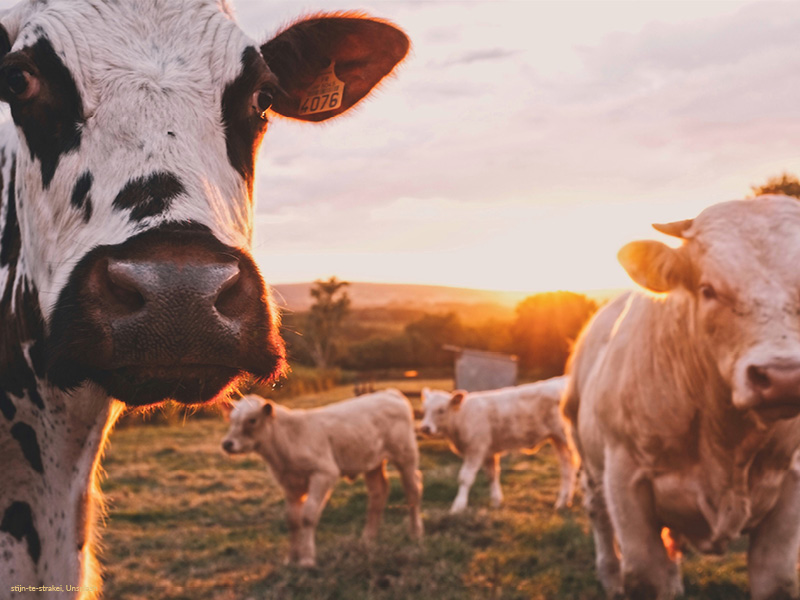Green2 Feed – Sustainable animal feed and biogas from green leaves

To become a bioeconomy for real – how do we solve issues about sustainable protein feed and renewable energy?
In order to increase substantially production of biogas that replaces fossil fuels we need vast amounts of biomass that agriculture can supply without affecting current food and feed production. But instead of digesting the green biomass from ley crops, sugar beet tops and other residues directly, Green2Feed aims to extract plant protein that can be used as feed for e.g. pigs and cows. The green biomass is separated in several fractions that are suitable as protein-rich animal feed while other fractions serve as feedstock for biogas production. This combined production enables replacement of fossil fuels and e.g. imported soya protein, with low control of sustainability. The ecological footprint of the Green2Feed process is expected to be much lower than that of the replaced products, as plant nutrients and organic carbon are returned to arable land in the form of digestate

Thomas Prade
Swedish University of Agricultural Sciences (SLU)

thomas.prade@slu.se
Project information
Participants
SLU
Energikontor Syd
Biogas Syd
Gasum AB
Lantmännen ek för
Svenska Foder Aktiebolag
Time schedule
January 2022 – December 2025
Total cost of project
5 865 581 SEK
Swedish Energy Agency project number
2021-00080
More projects

Sustainable aviation fuel from thermocatalytic refining of lignin and lignin-derivatives: development of biorefinery catalysts and reaction systems
This project aims to develop a cost-effective and efficient lignin refining technology as an alternative for petroleum refinery, with the goal of…
Manager: Ole Reinsdorf
Ongoing

Prestudy for commercial plants for OFS sustainable biofuels
Organofuel Sweden AB aims to commercialize a new, innovative and sustainable conversion process for biofuel production for road traffic and aviation. The…
Manager: Erik Nelsson
Ongoing

Fuel scenarios for aviation – Climate efficiency, feasibility and policy measures
The overall aim of the project is to (a) outline scenarios for the aviation fuel supply that provide a greatly reduced climate…
Manager: Jonas Åkerman
Ongoing


